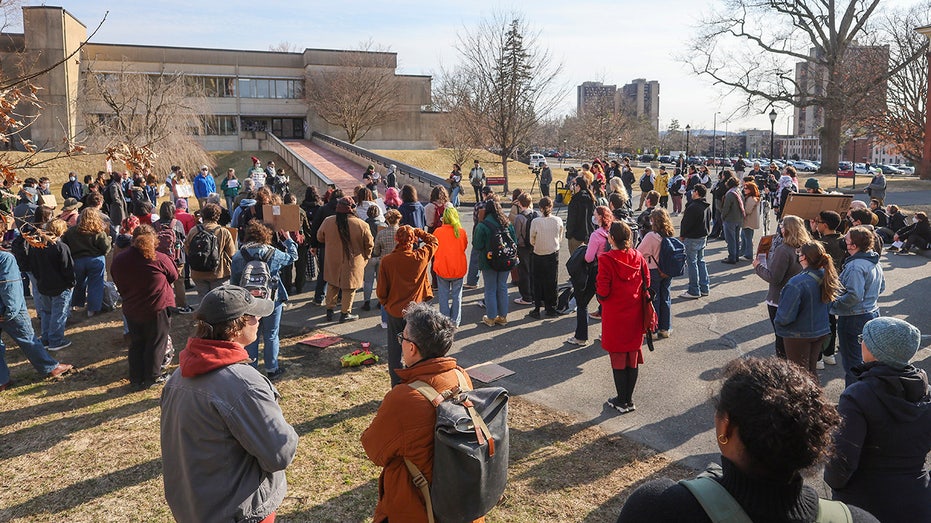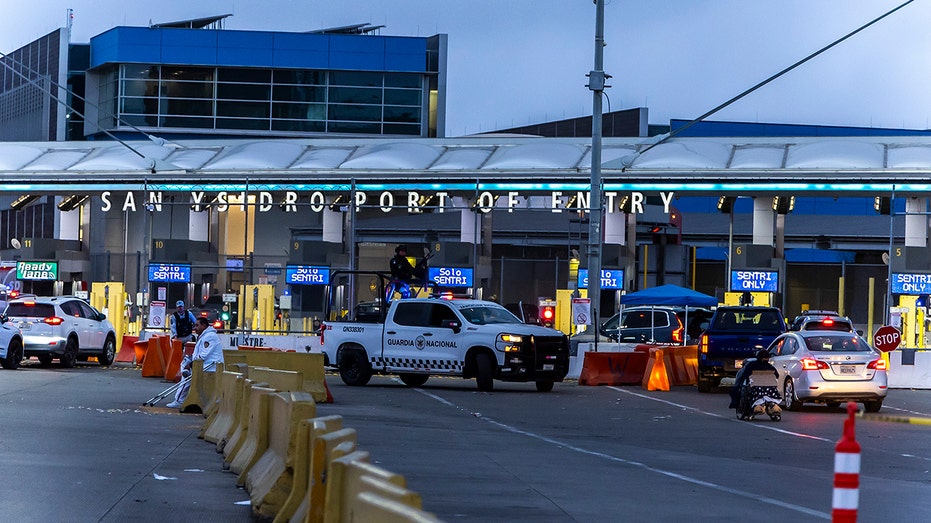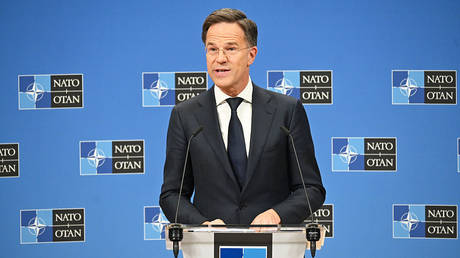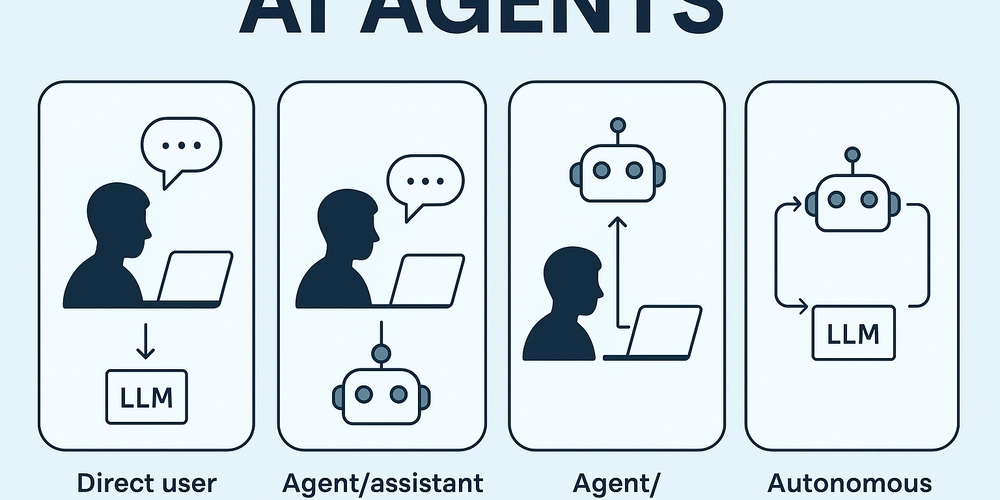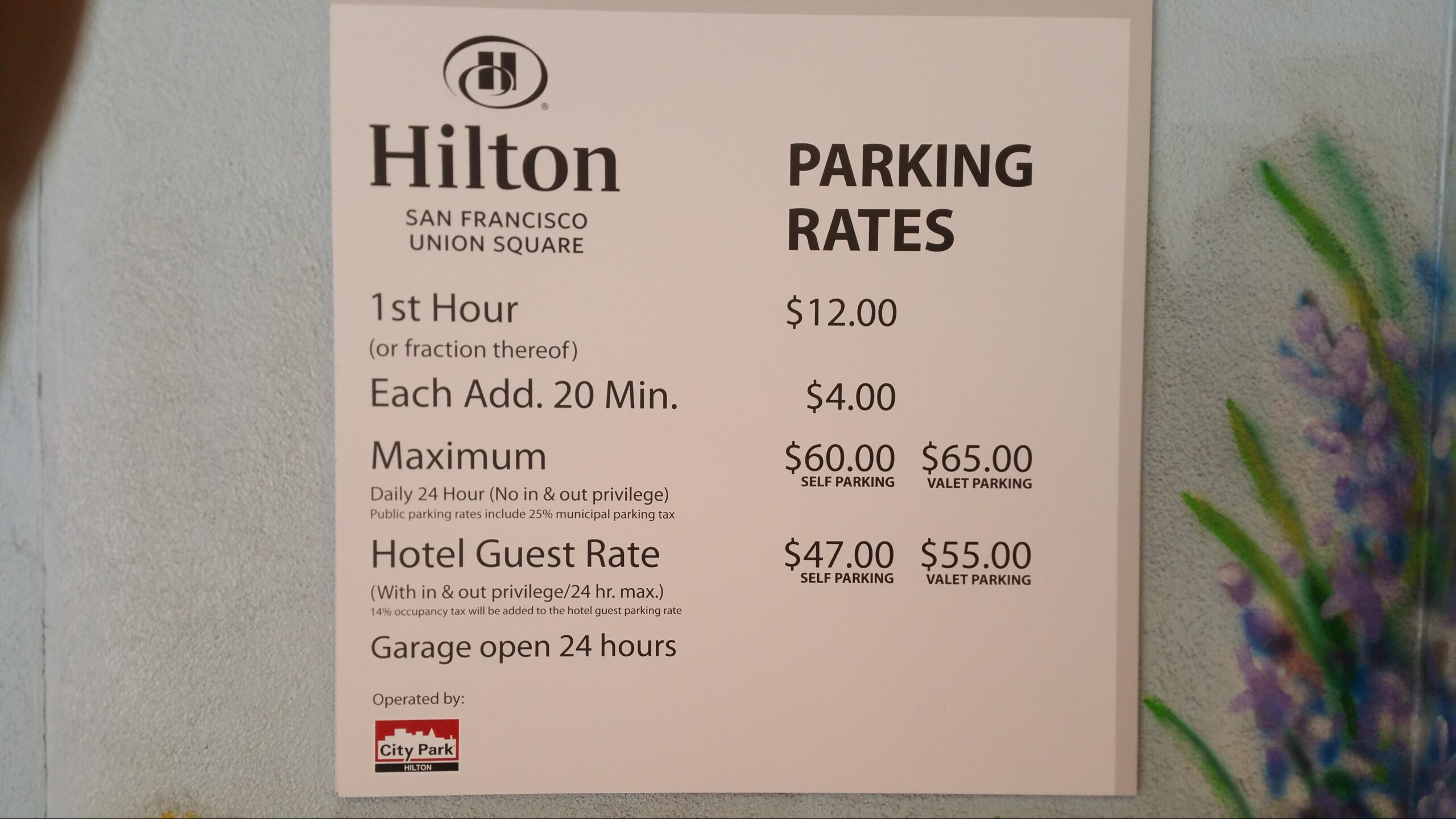Morning Report — Wall Street, US allies reel over Trump tariffs
In today’s issue: Tanking financial markets and warnings from international capitals on Thursday sent unmistakable messages to President Trump: “America First” may be “America alone” when steep tariffs treat the country’s friends like foes. "Our old relationship of steadily deepening integration with the United States is over," Canadian Prime Minister Mark Carney said Thursday. "The...

Editor’s note: The Hill’s Morning Report is our daily newsletter that dives deep into Washington’s agenda. To subscribe, click here or fill out the box below.
In today’s issue:
- Tariff aftershocks
- Lawmakers: Trade policy rests with Congress
- Loyalty test leads to NSC firings
- Rubio reassures NATO allies
Tanking financial markets and warnings from international capitals on Thursday sent unmistakable messages to President Trump: “America First” may be “America alone” when steep tariffs treat the country’s friends like foes.
"Our old relationship of steadily deepening integration with the United States is over," Canadian Prime Minister Mark Carney said Thursday. "The 80-year period when the United States embraced global economic leadership ... is over."
Here’s what to watch today and next week:
RETALIATORY RESPONSES from trading partners loom in reaction to U.S. levies set to take effect on Wednesday. Canada said it will impose 25 percent tariffs on U.S. autos that are noncompliant with the U.S.-Mexico-Canada trade deal inked during Trump’s first term. French President Emmanuel Macron urged European companies on Thursday to suspend planned investment in the U.S.
AFTERSHOCKS: Trump on Thursday was nonplussed amid blistering reviews. Stock indexes took historic swan dives. The value of the U.S. dollar fell. And companies small and large scrambled to sort out if their supplies from abroad were tariffed, how prices would change and when to pass higher costs to consumers. Experts predicted stagflation. Corporate chiefs, including with automakers and Big Tech, challenged the administration’s tariff calculus. And skeptics questioned the president’s planning and his assurances that a U.S. manufacturing renaissance is a sure bet. What they sought was a timeline. Trump was vague: “There’s going to be a transition period.”
CONCESSIONS?: Hours after the White House denied plans to wheel and deal with other nations over tariffs, Trump told reporters the world is clamoring to see exactly that. “You’ll see how things turn out,” the president said as he headed to Florida. He said he’s amenable to tariff negotiations — if competitors “are giving us something that is good.”
VOTERS: “I will end inflation,” Trump promised supporters during an October campaign rally before narrowly winning swing state Michigan. Rising prices in 2025 for vehicles, coffee and clothing were not what Americans expected to see when they cast their ballots in November, according to surveys at the time. Some GOP candidates eyeing 2026 say they’re increasingly worried about the U.S. economy and the pileup of shock-and-awe policy changes coming out of the administration. Trump’s job approval is at 43 percent, the lowest level of his second term (Reuters).
▪ The Hill: Here’s how the White House calculated reciprocal tariffs
▪ The Hill: What tariffs mean for U.S. workers, consumers and the economy.
▪ The Hill: A Florida-based small business and a conservative legal advocacy group filed suit in federal court Thursday seeking to block the administration’s use of the International Emergency Economic Powers Act of 1977 to impose tariffs on Chinese imports.
SMART TAKE with NewsNation’s BLAKE BURMAN:
It seems that the tariffs are just the start, not the end. President Trump hinted Thursday that deals could be in the works, saying, “The tariffs give us great power to negotiate.”
Keep in mind, trade policy plays heavily into long-term business decisions. CEO Ryan Petersen with supply chain tech company Flexport told me a lot of businesses are likely waiting to see where these tariffs land.
“We're probably still in the moment of observing the world before we rush to these — these are long-term decisions of where you put your factory, where you do your supply sourcing, et cetera,” Petersen told me. “So, it's probably a little too early to make any drastic decisions.”
So, while the stock market provided an immediate reaction, business could be waiting for the one thing they love: certainty.
Burman hosts “The Hill” weeknights, 6p/5c on NewsNation.
3 THINGS TO KNOW TODAY:
▪ Soy sauce, workout gear, new TVs: What Americans are rushing to buy before tariff effects set in.
▪ Sixty percent of Americans carry credit card balances from month to month, meaning they feel the hit from high interest rates, according to the Federal Reserve.
▪ The administration is eyeing $510 million in federal contracts and grants awarded to private Brown University in Providence, R.I., adding to a list of Ivy League colleges pressured by the government to make academic and administrative changes.
LEADING THE DAY
© The Associated Press | Becky Bohrer
TARIFF PUSHBACK: GOP senators are expressing varying degrees of shock and alarm at the scale of Trump’s “reciprocal” tariffs against trading partners and allies. Senators are concerned that Trump’s tariffs will likely further drive up the price of consumer goods at a time when many Americans are fed up with inflation. As The Hill’s Alexander Bolton writes, those prices were a driving factor behind Republican victories in the 2024 election.
“There’s a lot that I certainly don’t know,” said Sen. Lisa Murkowski (R-Alaska). “How long are they going to last? There’s a lot of uncertainty. One of the things that I’m hearing from folks back home is they’re certainly afraid about what it’s going to mean for price increases, very afraid about that.”
In response to the tariffs, senators have introduced bipartisan legislation to grant Congress more power over instituting tariffs on other countries. The bill, co-sponsored by Sens. Maria Cantwell (D-Wash.) and Chuck Grassley (R-Iowa) — both members of the Senate Finance Committee — would “reaffirm” the role of Congress in setting and approving trade policy. The release states the latest bill is modeled after the War Powers Resolution of 1973, which requires the president to notify Congress when sending troops to foreign countries without congressional approval and gives lawmakers oversight to limit actions without that approval.
Senate Minority Leader Chuck Schumer (D-N.Y.) slammed Trump's tariffs in a floor speech on Thursday. “Yesterday, Donald Trump made one of the dumbest decisions he has ever made as president, and that's saying something,” he said. “Donald Trump has single-handedly created a financial forest fire.”
BUDGET BATTLES: The budget plan gulf between the House and Senate appears nowhere near closing. Senate Republicans on Thursday cleared the first procedural hurdle for their budget bill along party lines, teeing up a vote-a-rama today.
But the upper chamber’s budget resolution, designed to usher Trump’s sweeping domestic priorities into law, is getting a cold reception from Republicans in the House, where lawmakers of all stripes are balking at the low levels of mandated spending cuts and the heightened deficits that could result. But after Trump’s endorsement of the plan, The Hill’s Mychael Schnell and Mike Lillis report House Republicans face enormous pressure to give the president a victory on his top campaign promises. If the early response is any indication, they have their work cut out for them.
“THE SENATE VERSION IS DEAD ON ARRIVAL,” Rep. Ralph Norman (R-S.C.), a member of the hard-line conservative House Freedom Caucus, wrote in a text message, “among many of our Freedom Caucus members as well as other conservatives who are concerned about the lack of cuts in the Senate bill.”
The Hill’s Aris Folley breaks down several big questions that the new budget blueprint leaves unanswered.
Politico: Some Senate GOP lawmakers expect the president to start arm-twisting fiscal conservatives in the House to get on board with a tax plan.
HOUSE IN STANDSTILL: The debate is just the latest challenge for Speaker Mike Johnson (R-La.) and his leadership team, who are already struggling to resolve an internal battle over proxy voting for new parents — one that’s shut down floor activity indefinitely — and will soon confront the dilemma of how to approach the Senate budget blueprint in the face of the uproar within their House GOP conference.
Trump threw a wrench into Johnson’s proxy voting dilemma Thursday when he said he supports the effort. His comments come as the standoff between House GOP leadership and Rep. Anna Paulina Luna (R-Fla.) hardens.
“I don’t know why it’s controversial,” Trump said. “I’m gonna let the Speaker make the decision, but I like the idea of being able to — if you’re having a baby, I think you should be able to call in and vote. I’m in favor of that.”
With the House out until Monday after the proxy voting fight brought the lower chamber to a screeching halt, Johnson and his GOP colleagues must find a way to resolve the dilemma over the weekend.
▪ The Hill: Luna said Johnson called her to discuss the possibility of allowing proxy voting only for new mothers “who cannot physically travel in event of emergency,” not all new parents.
▪ The Hill: The Senate on Thursday confirmed celebrity physician and unsuccessful GOP Senate candidate Mehmet Oz along party lines to be administrator of the Centers for Medicare and Medicaid Services.
WHERE AND WHEN
- The House will meet at noon on Monday.
- The Senate will convene at 8:30 a.m.
- The president is in Florida where he hosts a dinner event at Mar-a-Lago at 7:30 p.m.
- Federal Reserve Chair Jerome Powell will offer an economic outlook during a conference of the Society for Advancing Business Editing and Writing at 11:25 a.m. in Arlington, Va.
ZOOM IN
© The Associated Press | Ted Shaffrey
TRUMP WORLD: Far-right activist Laura Loomer — who has peddled conspiracy theories about the Sept. 11 terrorist attacks — on Wednesday went to the White House to raise concerns about National Security Council (NSC) staff members she considered insufficiently loyal to Trump. The roughly 30-minute meeting was attended by Trump, national security adviser Mike Waltz, Vice President Vance and other senior officials. Multiple NSC staffers were fired as a result of the meeting. Loomer confirmed the meeting with Trump in a post on the social platform X but said she would not share any details about it “out of respect for [President Trump] and the privacy of the Oval Office.”
Trump on Thursday said he “sometimes” listens to Loomer’s recommendations, even as he denied she was responsible for the ouster of the national security officials.
“Laura Loomer is a great patriot. She’s a very strong person,” Trump told reporters. “She makes recommendations on things and people, and sometimes I listen to those recommendations, like I do with everybody. I listen to everybody, and then I make a decision.”
The White House has given no reason for the Thursday ouster of Gen. Timothy Haugh, the head of the National Security Agency and U.S. Cyber Command, and his deputy, both of whom were appointed during the Biden administration.
But Loomer mentioned Haugh on social platform X early this morning, writing “NSA Director Tim Haugh and his deputy Wendy Noble have been disloyal to President Trump. That is why they have been fired.”
BBC: Who was among the fired NSC staffers?
SIGNAL: The Defense Department’s acting inspector general will review Defense Secretary Pete Hegseth’s use of Signal to discuss military strikes against the Houthis in Yemen with other national security officials last month. The probe comes after the chair and ranking member of the Senate Armed Services Committee requested the inspector general conduct a review of the chat, which occurred on a non-secure messaging app and contained detailed information about planned military strikes.
DEPORTATIONS: U.S. District Court Judge James Boasberg hinted at possible contempt proceedings on Thursday as he grilled a government lawyer about whether the Trump administration violated his court order by failing to turn around planes carrying migrants to a Salvadoran prison. Boasberg pushed the administration to detail its timeline when it loaded more than 200 migrants onto a plane amid a court battle to block the deportations.
“It seems to me there’s a fair likelihood that that is not correct, in fact that the government acted in bad faith throughout that day,” Boasberg told the Justice Department lawyer. “If you really believed everything you did that day was legal and could survive a court challenge, I can’t believe you ever would have operated the way you did.”
▪ The Hill: A federal appeals court on Thursday temporarily paused an order that blocked the Trump administration from effectively dismantling the Consumer Financial Protection Bureau.
▪ The Hill: A federal judge granted a temporary restraining order Thursday that stops the Trump administration from pulling back more than $11 billion in public health funding from state and local health departments.
▪ The Hill: Democratic attorneys general from 19 states joined the legal fight over Trump’s executive order that aims to strengthen proof of citizenship requirements in voting and prevent states from tabulating mail-in ballots received after Election Day.
ELSEWHERE
© The Associated Press | Jacquelyn Martin
NATO: Secretary of State Marco Rubio visited NATO headquarters in Brussels on Thursday for a gathering of foreign ministers. Rubio sought to quell anxieties among his European counterparts as Trump’s tariffs take effect, the president mulls withdrawing from NATO altogether and U.S. support for Ukraine hangs in the balance. But Rubio also delivered a warning — Trump’s commitment to NATO hinges on the alliance changing, with Europe shouldering the burden of its own defense as America turns elsewhere.
“The United States is as active in NATO as it has ever been,” Rubio told reporters as he greeted NATO chief Mark Rutte. “And some of this hysteria and hyperbole that I see in the global media and some domestic media in the United States about NATO is unwarranted.”
Europe’s widening rift with Washington has sped up talks among European countries about replacing U.S. responsibilities at NATO, but officials warn it would take at least five to 10 years and significant funds to backfill advanced U.S. capabilities.
UKRAINE: Kyiv has not yet discussed new military aid packages with the U.S. amid uncertainty about additional support from Washington for the fight against Russia's full-scale invasion. In late March the U.S. reached separate deals with Ukraine and Russia, which included proposals to pause their attacks at sea and against energy targets. Since then, the two countries have accused each other of continued strikes on energy facilities.
The Washington Post: Analysts say U.S. negotiators are being outmatched by their Russian counterparts in Ukraine talks.
MYANMAR: Senate Democrats in a Wednesday letter criticized the Trump administration’s response to a recent earthquake in Myanmar that has left thousands dead. The earthquake in Myanmar occurred Friday, with the country’s government saying the death toll reached 3,145 on Thursday. Thousands of buildings were toppled by the 7.7 magnitude earthquake that also resulted in damage to roads.
In their letter, the Democratic lawmakers requested information including whether Americans are “still able to deploy certified search-and-rescue teams to disaster zones from Virginia and Southern California.”
▪ NPR: Myanmar's ruling military declared a temporary ceasefire in the country's civil war to facilitate earthquake relief efforts.
▪ The New York Times: In pressing forward with its assault on Gaza, Israel hopes to squeeze Hamas into releasing the remaining hostages. But other objectives have emerged.
▪ CNN: Israeli Prime Minister Benjamin Netanyahu says Israel is now dividing up Gaza. What does that mean on the ground?
▪ CNBC: South Korea’s Constitutional Court upheld the impeachment of President Yoon Suk Yeol, ousting him from office. In December, Yoon briefly declared martial law in South Korea, which was overturned by lawmakers who entered the National Assembly despite troops stationed at its doors.
OPINION
■ Why a stock market selloff may trigger a U.S. recession, by Vivekanand Jayakumar, opinion contributor, The Hill.
■ The nonsense behind America’s trade war, by The Washington Post editorial board.
THE CLOSER
© The Associated Press | Chris Pizzello
And finally …
